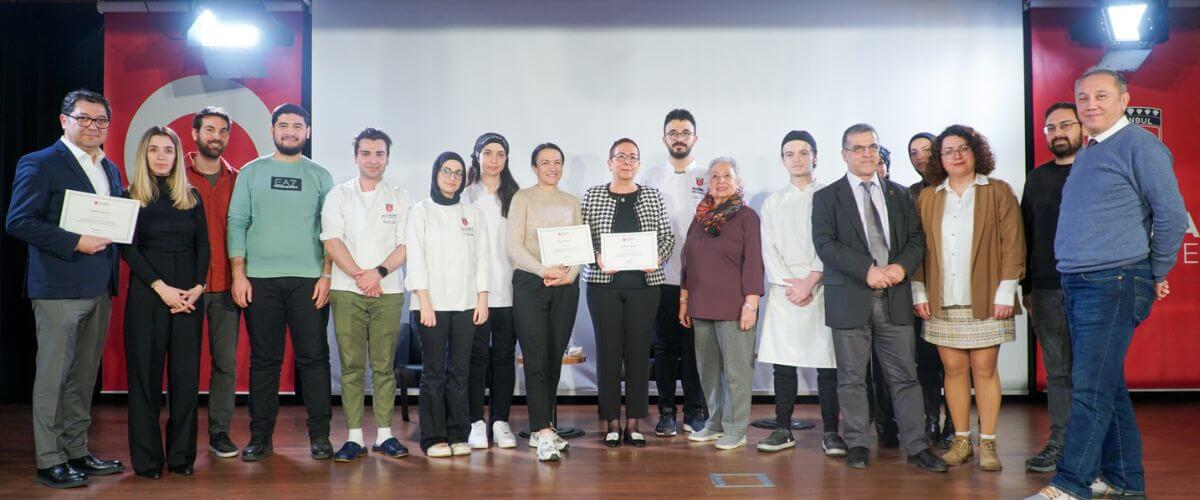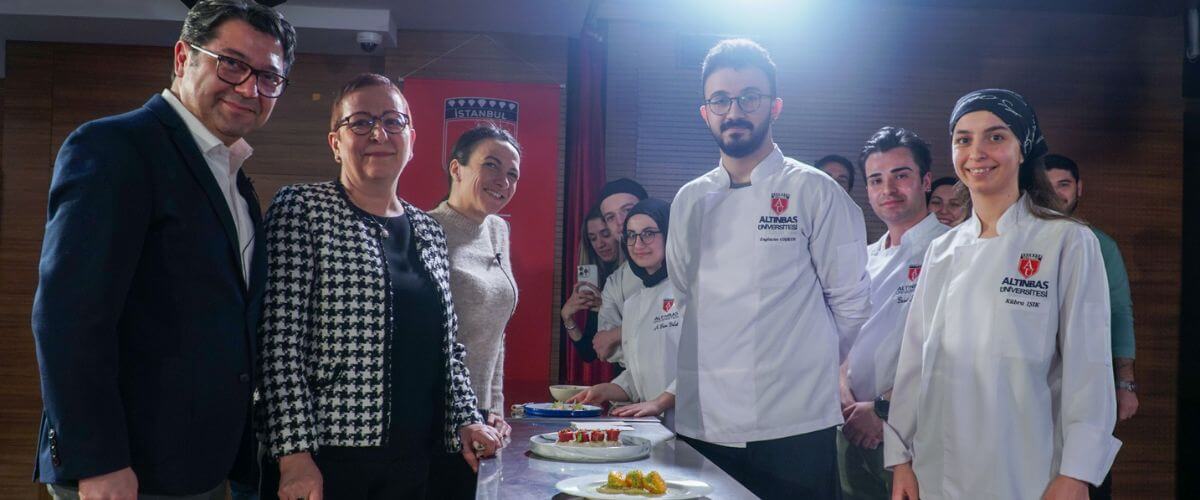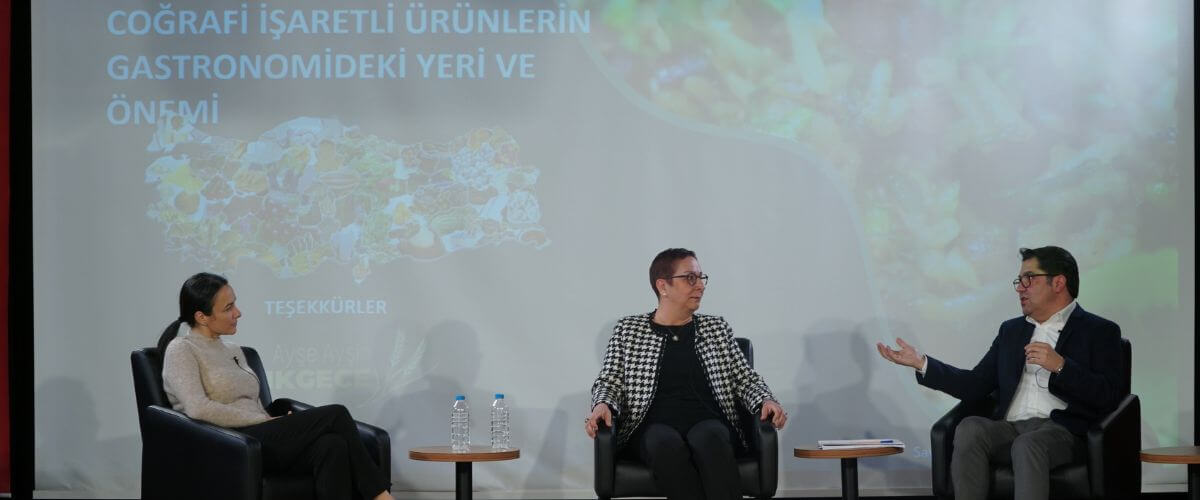If Continuity in Agriculture Dies...
The world is going through a period of multiple risks with pandemics, wars and population growth. The most critical area where the negative effects of climate change are felt is agriculture. Sustainable agriculture was scrutinized at Altınbaş University.
Altınbaş University Faculty of Applied Sciences Gastronomy and Culinary Arts Department organized a conference titled "The Importance of Geographical Indications in Gastronomy". The event, moderated by Altınbaş University Faculty Member Dr. İnanç Atılgan, hosted former Deputy Minister of Agriculture and Forestry Ayşe Ayşin Işıkgece and Chef Sinem Özler from Seraf Restaurant, listed in the Michelin Guide, as guest speakers.
During the conference, Ayşe Ayşin Işıkgece emphasized the significance of sustainability in agriculture, stating that the disappearance of continuity in agriculture would lead to the disappearance of richness as well. She highlighted the vital importance of identifying and registering geographical indication products, underscoring their role in preserving cultural heritage. Chef Sinem Özler emphasized the importance of incorporating geographical indication products into menus to pass them on to future generations.
Ayşe Ayşin Işıkgece reminded the audience that despite Türkiye's rich culinary culture and endemic diversity, only 20 geographical indication products are recognized by the European Union. She outlined the challenging process of obtaining geographical indication status, pointing out key considerations:
"A product should primarily be based on historical and ancient knowledge, recipes, and formulas. For instance, the production recipe of Erzincan tulum cheese is meticulously documented by the Turkish Standards Institution (TSE). The method of production should be unique to the region and must be proven and authenticated. TSE conducts research on these factors and grants approval. For instance, if you were to take the apricot tree from Malatya and plant it in another region, the resulting fruit wouldn't be considered Malatya apricot anymore."
Işıkgece noted that Türkiye possesses a vast richness of 3649 endemic plant species, but only 1343 geographical indication products. However, only 20 of these are recognized by the European Union. She stressed the need to increase this number, as geographical indication products offer higher added value and prices. Işıkgece also highlighted the impending global population growth, projecting that by 2050, the world population will reach 10 billion, with Türkiye reaching 105 million. This will necessitate a 65% increase in food and water consumption. Işıkgece emphasized the importance of slowing down consumption rates, particularly in the face of rapid urbanization, which has increased from 30% to 56% in the last 50 years.
Addressing the issue of agricultural sustainability, Işıkgece recommended increasing the use of certified seeds, which could increase productivity by 25%. She also emphasized the need to utilize unused agricultural land and promote technological advancements in agriculture to ensure efficient water usage.
Discussing food waste, Işıkgece mentioned the staggering $750 billion worth of food wasted globally, emphasizing the responsibility of individuals in preventing food losses. She advocated for supporting urban agriculture by encouraging businesses to source their greens from nearby agricultural areas, reducing costs due to shorter distances.
Chef Sinem Özler, reflecting on the 7th anniversary of their restaurant, stated their aim to present Anatolian cuisine in a modern context. She emphasized maintaining the authenticity of traditional recipes while refining their presentation and ambiance. Chef Özler emphasized the importance of experiencing local ingredients firsthand and recommended that gastronomy students visit farms to understand the value of products. She lamented the price undercutting by wholesalers, emphasizing their lack of respect for the product and inability of producers to harvest their crops.
Dr. İnanç Atılgan highlighted the diverse cultural layers in gastronomy, stating their efforts to impart these values to future chefs. He underscored the academic aspect of their education, stating that students are not only learning to cook but also understanding the background behind it. Dr. Atılgan emphasized the importance of teaching gastronomy students about the legal battles behind culinary heritage and the significance of geographical indication products in Turkish cuisine.
The conference shed light on the importance of preserving cultural heritage through sustainable agricultural practices and the promotion of geographical indication products in gastronomy, serving as a call to action for both individuals and institutions to contribute to these efforts.






